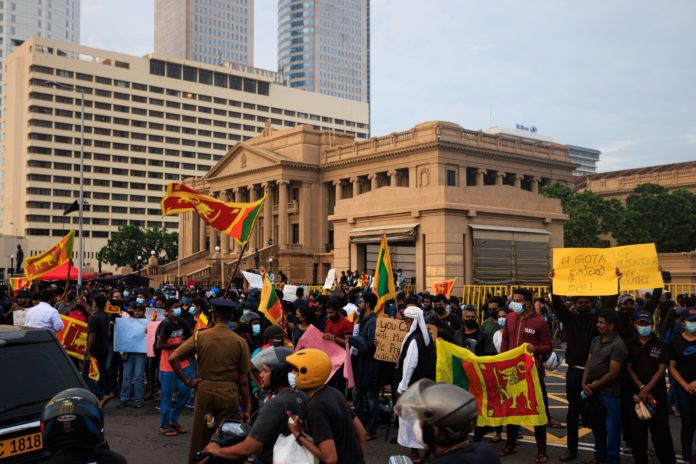
Veteran Arab journalist Abdel Bari Atwan says political and economic conditions in many Arab countries resemble that of Sri Lanka where the president has been overthrown by mass protests.
If you want to know what could happen in several Arab countries in the next few months, take a look at Sri Lanka. Thousands of peaceful protestors took over the presidential palace and other official buildings, forcing the Rajapaksa brothers to flee and announce their intention to surrender power.
Sri Lankans have been experiencing extremely bad living conditions that in some respects resemble those in Lebanon. The government is unable to service its massive foreign debt or provide for the country’s basic food, medicine or fuel needs. Electricity is in short supply due to the lack of fuel, pharmacy shelves are empty, three-quarters of the population live on one meal per day, and corruption is rampant, especially among the ruling elite.
Ironically, the corruption of the elected Sri Lankan president and his brother is a small change in comparison to their Arab counterparts. The protestors who stormed Mahinda Rajapaksa’s residence found a mere $48,000 worth of cash there in local currency and handed it over to the police.
U.S. Secretary of State Anthony Blinken tried to blame the unrest on Russia because of the rise in global grain prices caused by its obstruction of wheat exports from Ukraine. This is a big lie. The hunger protests in Sri Lanka began months before the Ukraine war, and the country imports most of its grain from neighbouring India.
The Sri Lankan scenario could well be replicated in several Arab countries that have begun to face food crises due to the 50% rise in grain prices on global markets and the reduction in export volumes caused by the Ukraine war, which the U.S. played a major role in instigating using the hapless Ukrainian people as surrogates and cannon-fodder.
It would be no surprise if hungry Arabs were to storm the palaces of their kings and presidents and the residences of their corrupt senior officials in protest at hunger and corruption in the months to come. If they did, they would find hundreds of millions of dollars worth of foreign currency, jewellery, gold bars, and expensive ornaments hoarded there, and not just the $48k found in the Sri Lankan president’s abode. He had been lionized by many Sri Lankans for ending the long-running Tamil insurgency, but they could not forget his looting, corruption and maladministration.
Subscribe to our newsletter and stay updated on the latest news and updates from around the Muslim world!
Hunger is unforgiving, and corruption is unforgivable. Popular uprisings are an inevitable outcome, in Sri Lanka and elsewhere.
This article was first published in Raialyoum.


















